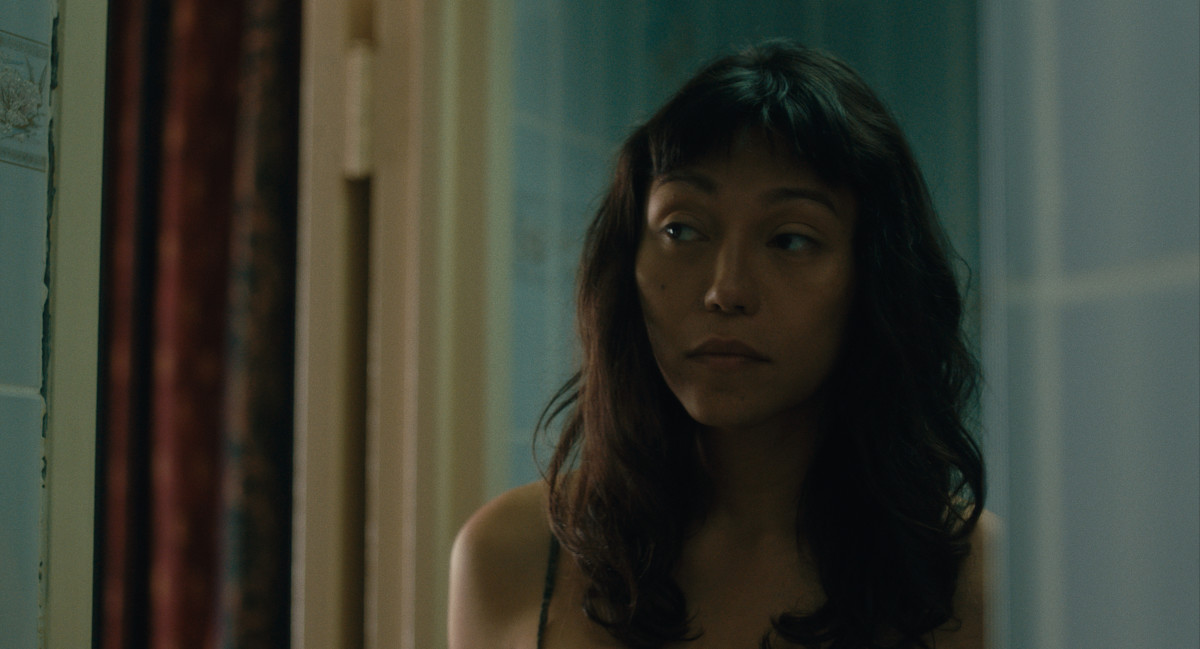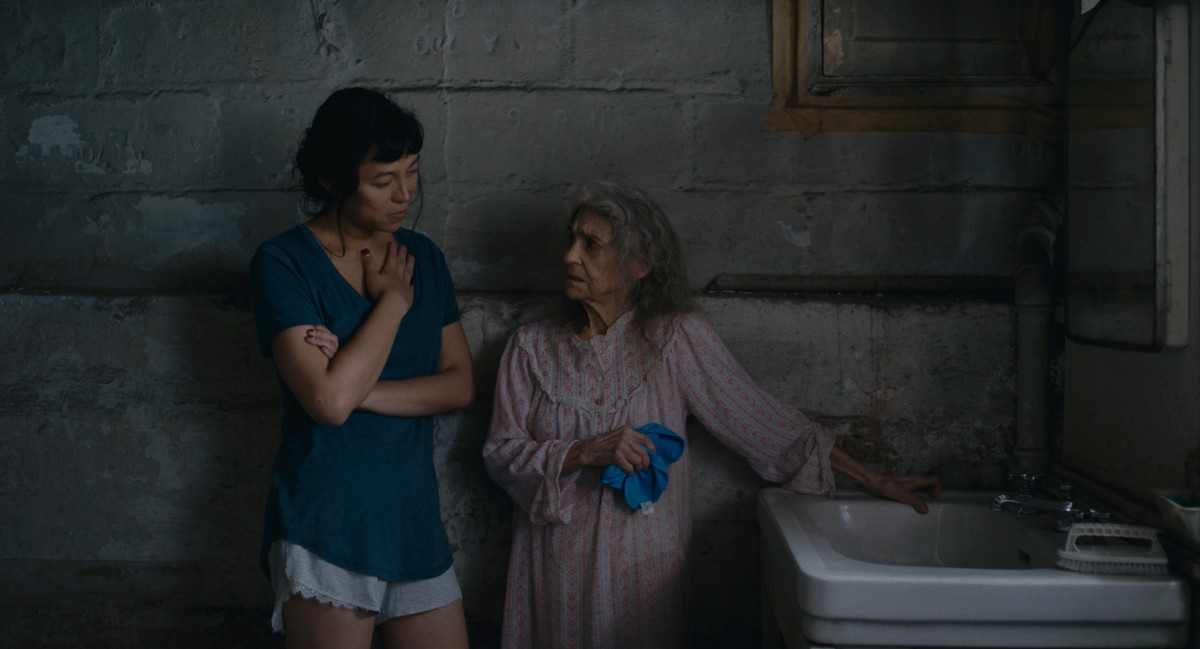Susan Kouguell interviews writer/director Isabel Sandoval about her film, “Lingua Franca,” the themes that are important to her, and advice to emerging writers and filmmakers.
SEP 1, 2020
Click to tweet this interview with your friends and followers!

“Every image or sound is a vessel for emotion: rapture, despair, sensuousness, fury, a combination of these. That makes cinema a kind of legerdemain: the art of sculpting such seemingly artificial elements to create a singular, genuine emotional experience.”
Isabel Sandoval’s Lingua Franca made history at the 2019 Venice International Film Festival Venice Days program as the first film directed and starring an openly trans woman of color to screen in competition. In July 2020, Ava DuVernay’s ARRAY Releasing acquired the film, which debuts on Netflix and opens theatrically in select cities on August 26th.
I recently spoke with Sandoval before the release of her film. Lingua Franca follows an undocumented Filipina trans woman, Olivia (Isabel Sandoval), after she has secured a job as a live-in caregiver for Olga (Lynn Cohen), an elderly Russian woman in Brooklyn’s Brighton Beach neighborhood. Olivia’s main priority is to secure a green card to stay in America. But when she unexpectedly becomes romantically involved with Olga’s adult grandson, Alex (Eamon Farren), issues around identity, civil rights and immigration threaten her very existence.
ABOUT ISABEL SANDOVAL (Director, Writer, Producer, Editor, Actress) An emerging auteur recognized by the Museum of Modern Art as a “rarity among the young generation of Filipino filmmakers for her muted, serene aesthetic”, Isabel Sandoval is a US-based filmmaker who has written and directed three features. Her debut, SEÑORITA (2011), competed in the Concorso Cineasti del presente at the 2011 Locarno FF. Her follow-up, APPARITION (2012), competed in the New Currents section at the 2012 Busan IFF. Considered a modern Philippine classic, APPARITION, is regularly programmed in retrospectives of Filpino cinema. Isabel is currently developing her fourth and most ambitious feature, TROPICAL GOTHIC, a 16th century surrealist drama about the haunting of a Spanish conquistador in the Philippine islands. The project is a 2020 Locarno Open Doors Hub selection.
Kouguell: You came up with the premise for Lingua Franca, which addresses both immigration and the transgender experience, while undergoing gender transition, but the film is not autobiographical. Let’s talk about the process of writing the script.
Sandoval: My theme of choice has been women with secrets, and also women who are disadvantaged, disempowered and forced to confront broader issues. This is true in all my features.
About halfway through writing the script, there were a lot of minorities living in the U.S. who were experiencing these same immigration issues, and I channeled that emotional state in the temperament of the film. It’s kind of an amorphous film; it has elements of drama and shades of a paranoid thriller so that’s how the premise and idea for the film came together. I was channeling that time.
Kouguell: Was it always your intention to also star in the film?
Sandoval: The idea came to me naturally. I like to think of myself as an auteur—when the writer directs, when the protagonist is kind of like an alter ego or double, so to speak. Olivia is a character I’ve known quite well and fondly for almost two years, so that decision to play her came quite organically.

Kouguell: In many of the interviews I have done for this publication, filmmakers tell me that either the script has remained the same from idea stage to the screen, and others say their work makes a complete departure from the script stage to the screen. Did you find that the story changed in any way or is this the film you always intended to make?
Sandoval: I took on the key creative roles—writing, directing, editing and being a producer because I feel like it helped me take my vision of the film from the page to the screen more faithfully as I originally conceived.
As an indie filmmaker, it’s very intuitive to me to be flexible and adaptable. With limited resources you don’t always get the location you want, etc., and there’s a lot of thinking on my feet, and my relationship to a script is a blueprint for a story.
Kouguell: Advice to aspiring writers and filmmakers?
Sandoval: I didn’t go to film school, but I exposed myself to many different kinds of cinema, especially risk-taking cinema that tackles unconventional styles, themes and narratives. My advice is to try to establish your own distinct and singular voice and be willing to take risks—that’s how we grow and evolve as filmmakers and artists.